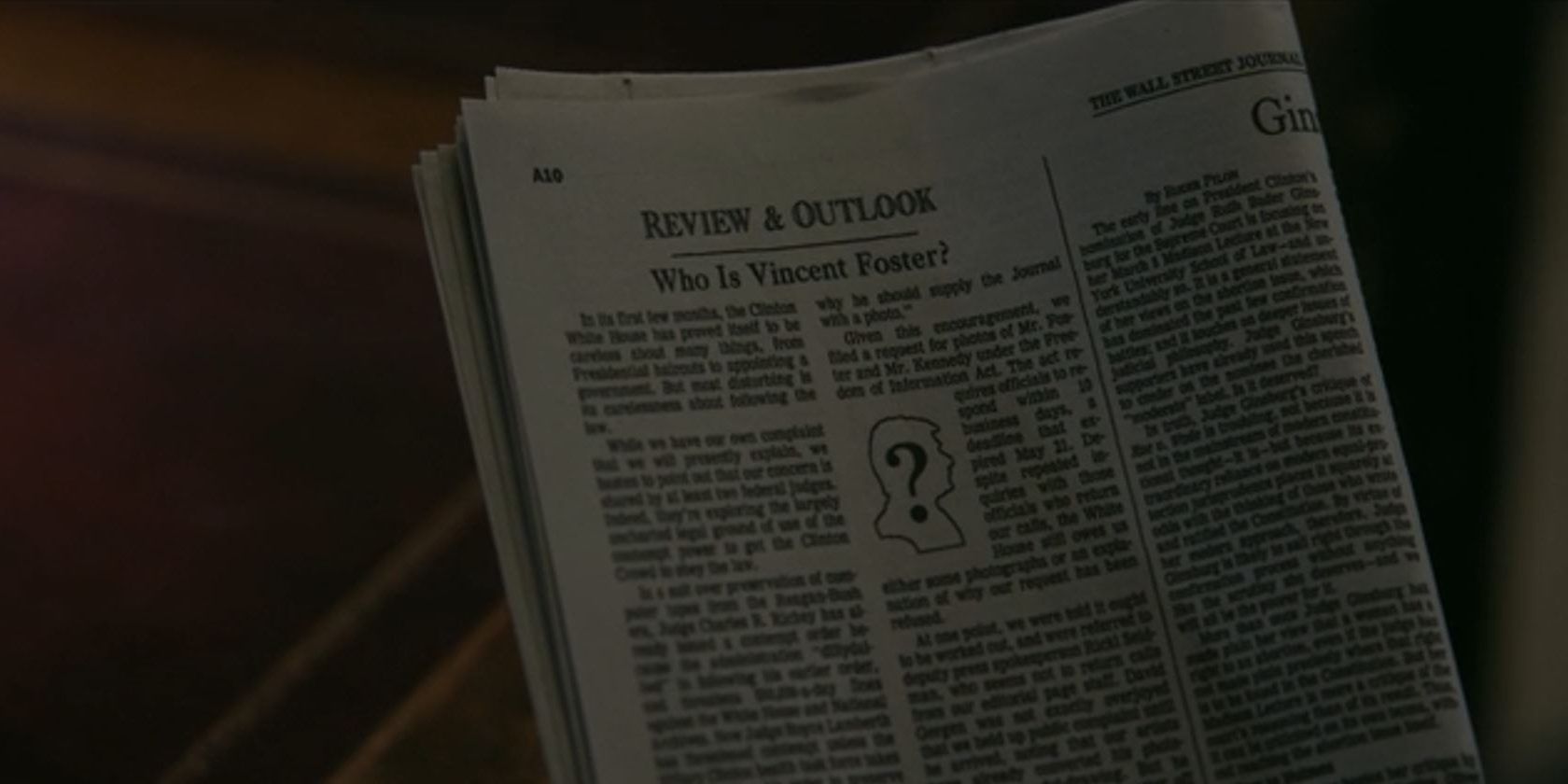Warning: This article discusses depression and suicide.
American Crime Story: Impeachment is a dramatized version of the Bill Clinton sex scandal that resulted in his impeachment, but begins with the seemingly unrelated death of Deputy White House Counsel Vince Foster. Foster's suicide, which is the chronologically earliest event depicted in the series so far, may initially seem unrelated to Clinton's relationship with Monica Lewinsky. However, Foster's inclusion is important to the series' commentary on the broader cultural moment of the Clinton impeachment, and how it still resonates in contemporary politics.
Vince Foster was a lawyer and childhood friend of Bill Clinton's who became the Deputy White House Counsel once Clinton was elected in 1992. Foster was an accomplished lawyer, but struggled with the transition to Washington, reportedly becoming depressed and anxious about being criticized in the media. The first episode of American Crime Story: Impeachment, focusing on Linda Tripp, briefly depicts a frustrated Foster, and also shows him committing suicide at Fort Marcy Park in Virginia.
While Foster was not directly involved in the accusations of sexual harassment and infidelity leveled at Clinton, his death does have a direct impact on American Crime Story: Impeachment's plot. As the series portrays it, the death of Foster and the later resignation of senior counsel Bernard Custiss left Tripp without a patron in the White House and resulted in her "exile" to the Pentagon. This both allowed Tripp to meet the similarly-exiled Monica Lewinsky and made her resent the administration, motivating her to eventually reveal Clinton's relationship with Lewinsky.
However, beginning the series with Foster's death is also important to the themes of American Crime Story: Impeachment. Vince Foster's suicide was seized on by far-right media figures - such as Jerry Falwell, who funded a film called The Clinton Chronicles that suggested Foster was murdered for political reasons. Despite numerous investigations ruling the death a suicide, conspiracy theories continued to circulate. This is suggested in American Crime Story: Impeachment through a T-shirt reading "Who Killed Vince Foster?" at the CPAC conference Paula Jones attends.
The obsession with Foster was part of a broader effort sometimes called "The Arkansas Project" by Republicans and the far right to discredit Clinton through investigations into the President's personal life and conduct. These accusations, whether based in reality or purely invented, created the atmosphere in which Clinton's relationship with Lewinsky could become such a media sensation. American Crime Story: Impeachment is in part about the rise of vicious conservative media, represented by Cobie Smulders' Ann Coulter, and how they exploited the real-life trauma of people like Lewinsky and Foster.
This theme is sadly very timely and relevant to 2021. The speculation around Foster's death, and the accusations of sexual harassment against Clinton, marked a point where right-wing media such as talk radio and newsletters that were willing to be more extreme than mainstream Republicanism grew exponentially and were able to exert political power. The rise of the internet and social media has only enhanced the ability of misinformation to spread, resulting in the popularization of baseless claims made about future Democratic politicians like Barack Obama and Hillary Clinton as well as contemporary conspiracy theories such as Q-Anon and COVID-19 denial. By beginning its story with Vince Foster, American Crime Story: Impeachment shows that it is concerned with how this pernicious media environment came to be.


